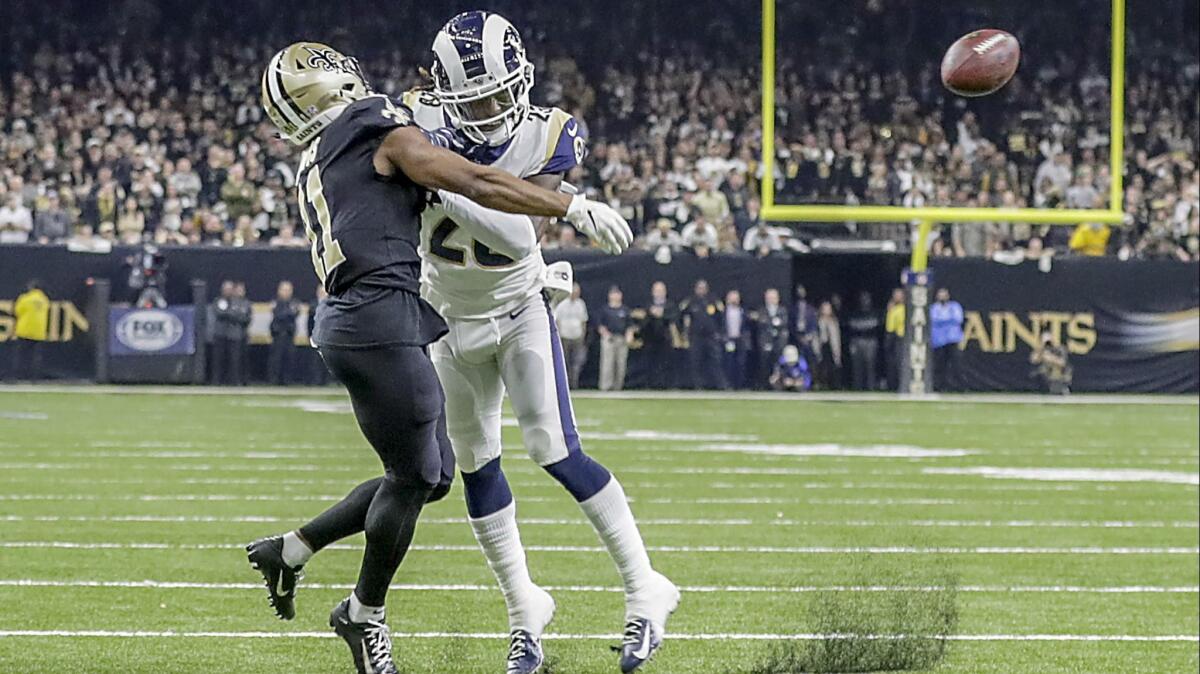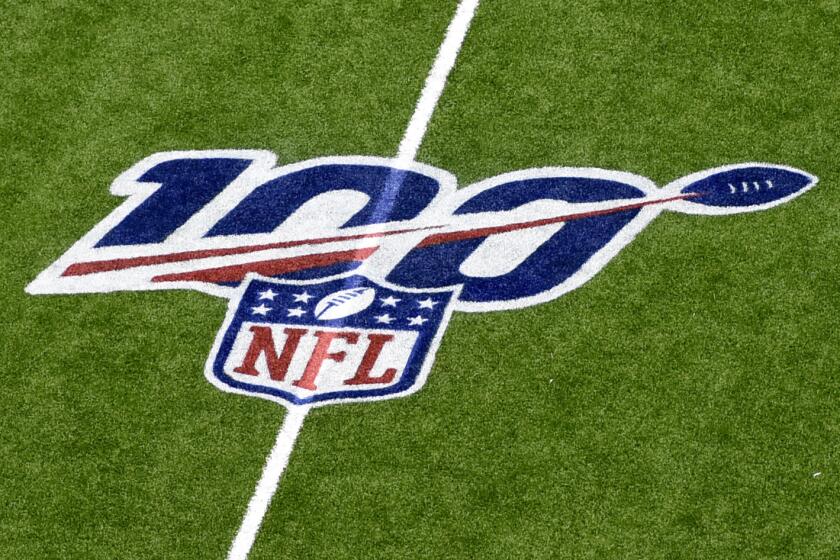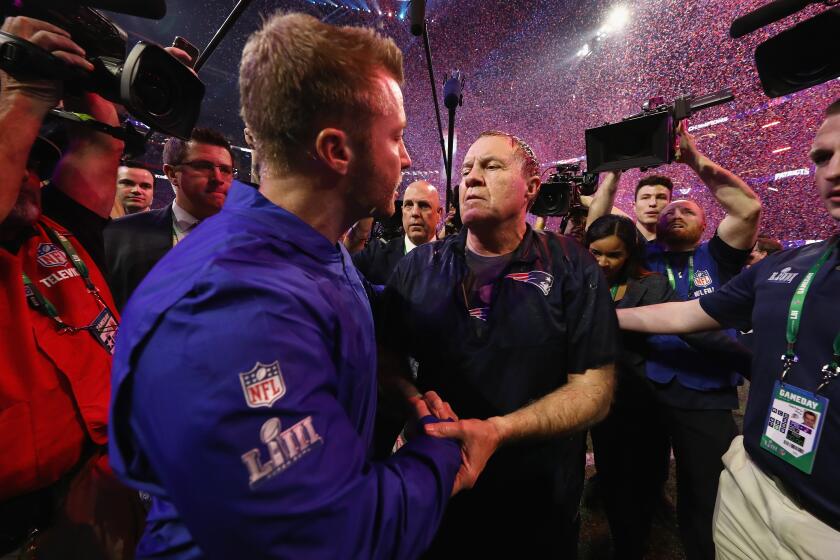NFL season kicks off with Packers-Bears, questions on pass-interference replay

- Share via
CHICAGO — As the NFL prepares to kick off the 2019 season, one aspect of the game unquestionably is in flux and figures to be for a while.
Coaches, players, officials, and fans are still adjusting to a controversial new rule that might or might not clarify the sport’s most debated infraction.
For one season only — starting officially with Thursday night’s opener between the Chicago Bears and Green Bay Packers — instant replay has been expanded to include pass interference called or not called on the field.
Whereas some people applaud the use of technology to assist in a call that’s often highly nuanced, others see it as unnecessary meddling by the league that threatens to slow the game to a crawl.
“I don’t want to split hairs and watch super-duper, quadruple slo-mo to see if it is or isn’t,” Oakland Raiders coach Jon Gruden said. “To me, that’s irrational and insane.”
The change was precipitated by an egregious non-call in last season’s NFC title game between the Rams and New Orleans Saints. There was a robust uproar in New Orleans and beyond after Rams defender Nickell Robey-Coleman clobbered Saints receiver Tommylee Lewis before the ball arrived, yet no flag was thrown.
Previewing the 2019 NFL season as the league celebrates its 100th year and the Rams and Chargers look to contend for the Super Bowl LIV title.
The play came with less than two minutes left, and New Orleans facing a third-and-10 at the Los Angeles 13-yard line. The Saints wound up losing the game in overtime and point to that play as the one that denied them a trip to the Super Bowl. (It’s noteworthy that the Rams also have officiating beefs from that game.)
Regardless, the NFL took action in the offseason, and owners voted 31-1 in favor of making interference reviewable, with the Cincinnati Bengals’ Mike Brown being the lone no vote.
The standard for overturning a call or non-call is if there’s “clear and obvious visual evidence” that the receiver has been “significantly hindered.” Even with the benefit of high-definition replays, however, determining that is easier said than done.
The same challenge rules apply: A team is permitted two challenges per game, each requiring the use of a team timeout. If a challenge is upheld, the timeout will be restored. One challenge will be restored if a team is successful on both challenges, but under no circumstances will a fourth challenge be permitted.
In exhibition games last month, there were 54 stoppages related to pass interference. In 47 of those instances (87%), the officials’ decision stood.
“The language has been rewritten, so it will be a week-to-week thing,” Tampa Bay coach Bruce Arians said of learning the ins and outs of the new rule, and what will sway officials. “I’m sure something will come up each week, ‘Hey, we’ve got to talk about this one. We’ve got to talk about that one.’ Then, they will change the rule again.”
Not surprisingly, there are concerned defensive players out there, not necessarily because they are prone to infractions but because plays could be picked apart in frame-by-frame detail, which doesn’t always provide the best perspective.
“So far, I’ve liked that they’re not trying to watch it in slow motion and call it if your pinkie touches the receiver a second early,” New England safety Devin McCourty said. “We all know when things are in slow motion, it looks totally different.”
While one Patriots defensive back likes the way the system has worked to this point, a former New England star — Hall of Fame defensive back Ty Law — sees the change as ominous.
“It’s going to take away from the game,” Law said. “Referees are out there for a reason. Yes, they don’t make every call right. But something like that, a pass interference, once you start opening that can of worms, it’s going to get ugly and the game’s going to get a lot longer.
Los Angeles Rams coach Sean McVay plays down history and talk of a Super Bowl hangover, but can the Rams rebound from failure?
“Defensive players get the bulk of the pushing and the blame for this or that. But there’s a lot going on between a defensive back and a wide receiver, especially when you’re running downfield. You’ve got two of the fastest guys on the field, and things happen in a spit-second. So if they start all of a sudden start throwing the red flag out … it’s going to disrupt the game.”
The way Law sees it, it’s more about green bills than red flags, anyway.
“It’s still about the offense; it’s about scoring points,” he said. “I understand the business aspect of it, but you have to let the game be played.”
More to Read
Go beyond the scoreboard
Get the latest on L.A.'s teams in the daily Sports Report newsletter.
You may occasionally receive promotional content from the Los Angeles Times.













